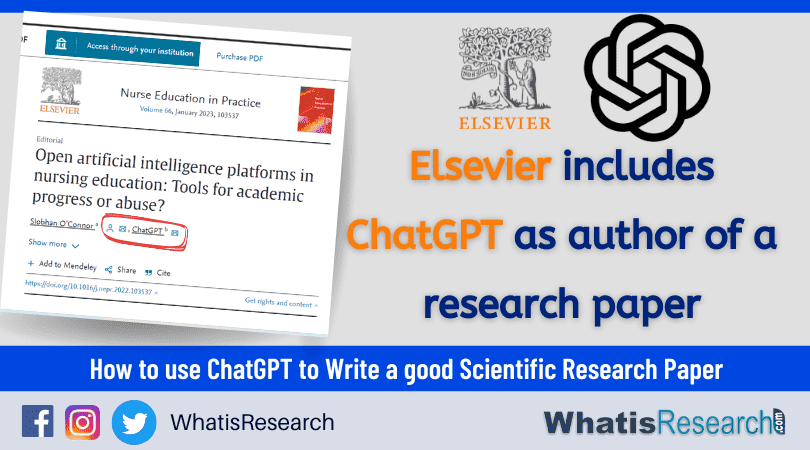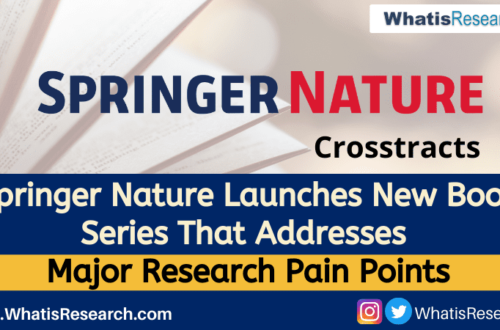If you are a researcher or author of a research paper then it’s good news for you. Here we will discuss Elsevier includes ChatGPT as author of a research paper.
Elsevier includes ChatGPT as author of a research paper.
In some recent news articles from The Guardian and Nature, several scientific publishers have baned ChattGPT to be used as an author of a research paper. According to The Guardian, Holden Thorp, the editor-in-chief of the leading US journal Science, announced an updated editorial policy, which banned the use of text from ChatGPT and clarified that the program could not be listed as an author.
You can check the updated editorial policy form here. According to Holden Thorp ChatGPT is fun, but not an author.
Read here Science journals ban listing of ChatGPT as co-author on papers
The approximately 3,000 journal publisher Springer-Nature revised its policies to say that ChatGPT cannot be identified as an author. Yet ChatGPT has not been officially prohibited by the publisher. If complete disclosure is included in the article, the tool and others like it may still be used in the production of publications.
ChatGPT is listed as an author of a research paper.
The advent of artificial intelligence (AI) as a critical instrument for scientific research and communication has ushered in a new age in scientific publishing, which is symbolized by this ground-breaking development. Elsevier has listed it as a co-author of a research article in the journal “Open artificial intelligence platforms in nursing education: Tools for academic progress or abuse?”.
Apart from this article, we found another three articles co-authored by the ChatGPT published by Elsevier.
What benefit for the researchers?
It is a huge advancement for AI in scientific publishing that ChatGPT has been added as a journal author. It highlights the potential of AI to support scientific study and advance knowledge, and it creates new opportunities for interaction between humans and machines.
As new technology and methods are adopted to increase the quality, accessibility, and impact of scientific research, Elsevier’s choice to list ChatGPT as a journal contributor reflects the continuously evolving environment of scientific publication.
How to use ChatGpt to Write a good Scientific Research Paper.
If you use the ChatGPT effectively it could a great assistant for you to write a research paper. Yes, you read it right. Use it as your assistant. Not to use as your writer. Here are some of the effective ways you can use it.
- Define your research hypothesis or query.
- Perform a literature review
- Analyse and interpret your data
- Draft your research paper.
- Proofread your research paper.
Always remember ChatGPT is a tool that will help you to write your research paper. It should not replace you as a writer and researcher.
ChatGPT can’t produce 100 percent plagiarism-free content for your paper.
It also may not generate content errors free.
Final words
The ChatGPT is a powerful tool that makes the researcher’s work easier in some parts. But the major issue with it is not 100 percent accuracy and originality. Elsevier includes ChatGPT as the author of a research paper that has instructed the researcher world of adopting new technology rapidly. Despite several restrictions and a ban ChatGPT has been adopted by Elsevier is a welcome move for the research community around the world. ChatGPT is positioned to play a crucial role in the creation of research articles as the area of research continues to develop.
Must read: Cover letter for journal submission






